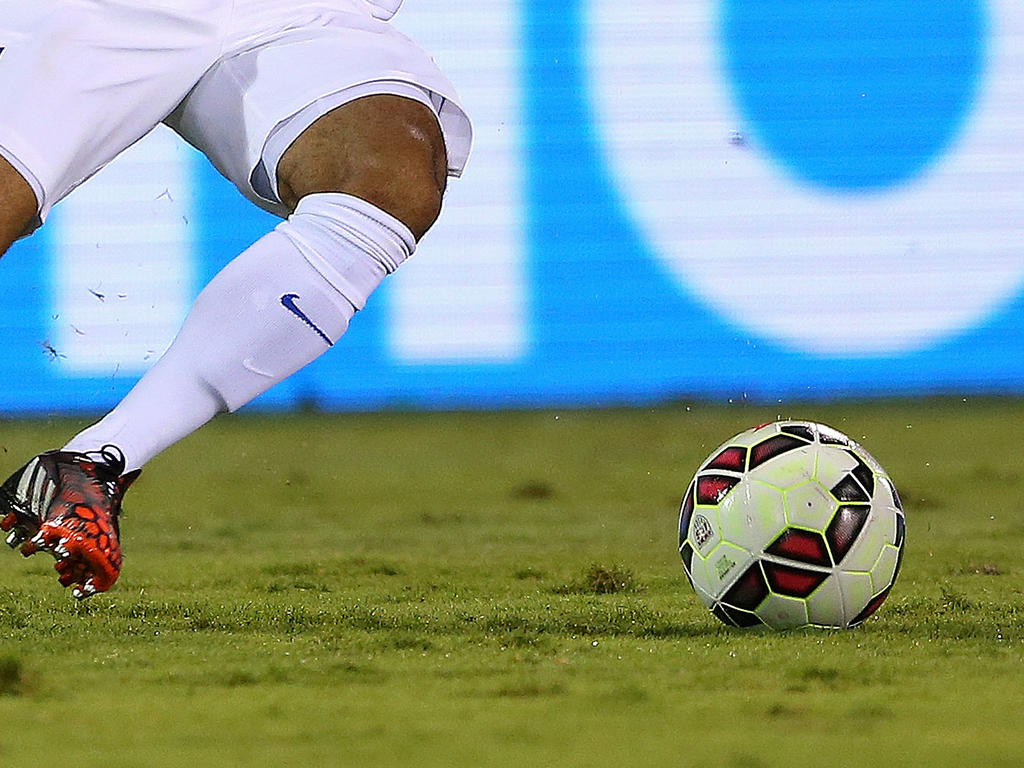Malaysia flares as Asia's problem child

Hooliganism, match-fixing and humiliation on the field -- Malaysia has emerged as Asian football's problem child, with the country's most popular sport rapidly becoming a national embarrassment.
Unruly fans piled on the disgrace Tuesday, forcing the abandonment of a World Cup qualifying match with Saudi Arabia as smoke-spewing flares flew onto the pitch and around the stands.
Sparked by seething anger over a record 10-0 drubbing by UAE the previous week, the outburst crystallised the Malaysian game's long-running slide into violence, corruption and chaos.
Malaysian football experts say the core of the problem is declining play blamed on years of wayward football administration and a failure to develop grassroots talent.
But it wasn't always so.
Former colonial masters Britain bequeathed a passion for football, and Malaysia's "Tigers" were once a source of pride.
Stars of club and country were feted as heroes during a 1970s and 1980s "golden era" when Malaysia was able to compete with current Asian giants like Japan, South Korea and Australia, though it never won an Asian Cup or qualified for the World Cup.
"We stood in the forefront of football back then. But today we have become the laughing stock of the region," said Peter Velappan, secretary-general of the Asian Football Confederation from 1978-2007.
Malaysia's national side has plummeted to 169 in FIFA's world rankings, one spot higher than its all-time low hit in 2008, and behind tiny East Timor (163) and Bhutan (164).
The Football Association of Malaysia (FAM) is now reaping decades of failure to build youth-development programmes and the loss of playing fields to the bulldozers of development, said former football officials, coaches, and leading sportswriters.
"We used to have very good state leagues, which encouraged football among the youngsters. But diminishing fields have resulted in local leagues experiencing a slow death," said veteran sports journalist Tony Mariadass.
Malaysia's political and economic wheels are greased by connections, patronage, and outright cronyism.
Velappan says this has leeched into football, with politics trumping professionalism in administrative, leadership and player decisions.
Accountability, however, is a sensitive issue.
FAM has been headed for 31 years by royal figures from the state of Pahang, one of nine states with ceremonial Islamic monarchs.
Strict laws discourage criticising the royals, which is widely believed to have muted demands for aggressive reform.
But fans are making their feelings known.
A huge banner held at Tuesday's match referred slyly to FAM's royal bosses, saying: "FAM, sleeping for 31 years."
Malaysia's multi-cultural make-up also was once a strength, with local stars coming from across its ethnic Malay, Chinese, and Indian communities.
But increasingly tense, sectarian domestic politics has resulted in majority Malays being favoured in national and club selections.
"Unfortunately, racial polarisation has now crept into football," said Velappan.
The 10-0 UAE debacle followed an earlier 1-1 draw in qualifying at home to East Timor and a 6-0 rout by Palestine.
Fan frustrations are increasingly bursting forth in a country where football has no rivals for popularity and FAM is viewed as letting the country down.
Sports Minister Khairy Jamaluddin had to apologise to Vietnam last December after Malaysian fans attacked Vietnamese supporters during a semi-final of the Southeast Asian championship.
FAM also was fined for unruly fan behaviour during a friendly against the Philippines in March this year, and the domestic leagues have seen recent clashes between fans and tear gas-firing police.
Match-fixing, meanwhile, has repeatedly blackened the domestic leagues.
A 1994 scandal saw 21 players and coaches sacked and 58 players suspended, but new cases continually resurface.
In 2012, FAM suspended 18 youth players and banned a coach for life for match-fixing. The following year, a Malaysian club suspended all of its coaches and officials after a string of suspiciously heavy defeats.
FAM now faces uncertainty, with FIFA having launched an investigation into this week's chaos -- blamed on a hardcore fan group called the "Ultras Malaya" -- that could result in disciplinary action.
Khairy had already threatened to take "drastic" action against FAM, including a possible suspension, in the wake of the 10-0 loss, and the body's president, who is Pahang's crown prince, has announced vague plans to step aside.
If Malaysian football is forced to reform, the Ultras Malaya may claim to have scored a victory.
"We had to hit FAM where it hurts the most," Al Fadli Awaludin, an Ultras Malaya member, was quoted as saying by Malaysian media.
"We had to humiliate FAM to get the message across."



